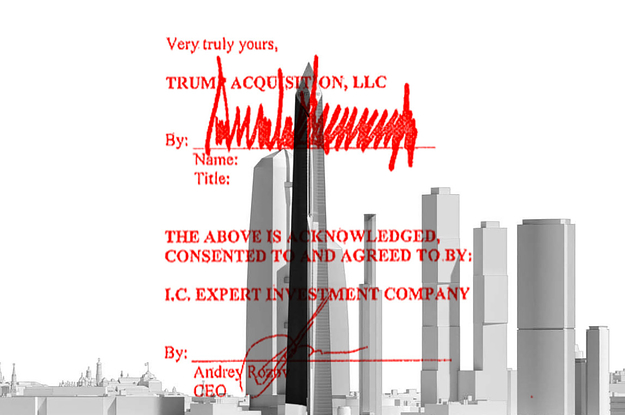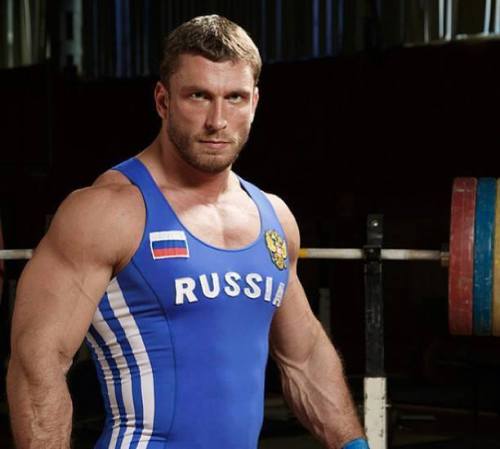By Katie Zavadski and Heather Vogell for ProPublica
 The ProPublica “Trump, Inc.” team gathered with laptops, pizza and Post-its to disconnect — and to read special counsel Robert Mueller’s report.
The ProPublica “Trump, Inc.” team gathered with laptops, pizza and Post-its to disconnect — and to read special counsel Robert Mueller’s report.What we found was page after page of jaw-dropping details about the inner workings of the administration of President Donald Trump, meetings with foreign officials and plots to affect our elections.
But we also found rich details on how Trump ran his business dealings in Russia, itself the subject of our recent episode on his Moscow business partners.
It backed up a lot of our earlier reporting: The deal with Andrey Rozov, a relatively unknown developer whose claim to international prominence was the purchase of a building in Manhattan’s garment district, did go further than agreements with other developers.
The type of development they were hoping for would need signoff from Russia’s powers that be — namely, President Vladimir Putin — potentially putting Trump in the position of owing favors to a hostile foreign power.
And the deal went on longer than the Trump campaign wanted the public to know, with the then-candidate rebuffing Michael Cohen’s concerns about the accuracy of his portrayal of his relationships with Russia.
Here are a few of our takeaways:
The deal was bigger…
The Mueller report puts the terms of Trump’s most infamous Trump Tower deal side by side with a failed prior deal with the family of Russian pop star Emin Agalarov. In doing so, it proposes an answer to why Trump chose to move forward with Rozov: he offered Trump a much better deal.In fact, Cohen said the tower overall “was potentially a $1 billion deal.” Under the terms of the agreement, the Trump Organization would get an upfront fee, a share of sales and rental revenue, and an additional 20% of the operating profit.
The deal offered by the well-known Agalarov developers, in contrast, would have brought in a flat 3.5%. We’d tried to reach Rozov to talk about the deal for our earlier reporting. He never responded.
For Trump, this agreement promised to be the deal of a lifetime.
There were more Russian contacts…
The report says Cohen and Felix Sater, a fixer who brought the Trump Organization together with the potential developer for the Moscow deal, both believed securing Putin’s endorsement was key. There was also plenty of outreach from Russians, many of them offering to make that very connection.But even as the two were figuring out how to pitch the tower plan to Putin, at least three intermediaries who claimed to have connections to the Russian president were reaching out to Trump and his associates. They promised help with Trump’s business interests and his campaign, the report says.

One was Dmitry Klokov, whom Cohen looked up online and mistakenly identified as a former Olympic weightlifter (right ⇨).
Klokov, in fact, worked for a government-owned electric company and was a former aide to Russia’s energy minister.
He told Cohen he could facilitate a meeting with a “person of interest” — that is, Putin — and also offered help creating “synergy on a government level.” But Klokov’s overtures for talks on matters beyond mere business interests were rebuffed by Cohen.
The report also clarified that it was Sater who approached the Russian developer with the idea of a Trump Tower Moscow — and later brought his pitch to the Trump Organization. This sequence of events raises new questions about whether the tower deal, which Trump had wanted for decades, was part of multiple intelligence approaches by the Russian government to Trump and his advisers at the time.
One other figure in our previous Trump Moscow episode surfaced again in the Mueller report: Yevgeny Dvoskin, a Russian national with a U.S. criminal record and alleged ties to organized crime. Dvoskin is now a part-owner of Genbank, a small Russian bank sanctioned by the U.S. Treasury.
He grew up in Brighton Beach at the same time as Sater, who, in 2016, called on Dvoskin to invite Trump and Cohen to Russia for an exploratory visit. To arrange the invitation,
Dvoskin asked for copies of Cohen’s and Trump’s passports, which Cohen was happy to provide. The Mueller report says that Trump’s personal assistant even brought Trump’s passport to Cohen’s office, but that it is not clear whether it was ever passed on to Sater.
Sater declined to comment for the podcast. Genbank and Dvoskin did not respond to earlier requests for comment.
And there was more cover-up…
Mueller describes continued efforts to mislead investigators and the public about the Trump Moscow deal and associates’ contacts with Russian officials. Many of the details are gleaned from Cohen’s cooperation.Cohen confronted Trump after he denied having business ties to Russia in July 2016 and pointed out that Trump Tower Moscow was still in play. “Trump told Cohen that Trump Tower Moscow was not a deal yet and said, ‘Why mention it if it is not a deal?’” according to the Mueller report.
To maintain Cohen’s loyalty during the investigation, multiple Trump staff members and friends told him the “boss” “loves you,” according to the Mueller report.
“You are loved,” another associate told him in an email. Cohen also said the president’s lawyer told him he’d be protected as long as he didn’t go “rogue.”
The report concludes that active negotiations in Moscow continued into the summer of 2016. Cohen told Mueller’s team that the project wasn’t officially dead until January 2017, when it was listed with other deals that needed to be “closed out” ahead of the inauguration.
After admitting to lying to Congress about when the Moscow deal fizzled, Cohen told Mueller about the “script,” or talking points he’d developed with Trump to downplay his ties to Russia.
He also said he believed lawyers associated with his joint defense agreement — including attorneys for the president — edited out a key line about communications with Russia from his congressional testimony.
The offending line: “The building project led me to make limited contacts with Russian government officials.”
You can contact us via Signal, WhatsApp or voicemail at 347-244-2134. Here’s more about how you can contact us securely.
You can always email us at tips@trumpincpodcast.org.
And finally, you can use the Postal Service:
Trump, Inc. at ProPublica 155 Ave of the Americas, 13th Floor New York, NY 10013
ProPublica is a Pulitzer Prize-winning investigative newsroom. Sign up for The Big Story newsletter to receive stories like this one in your inbox.